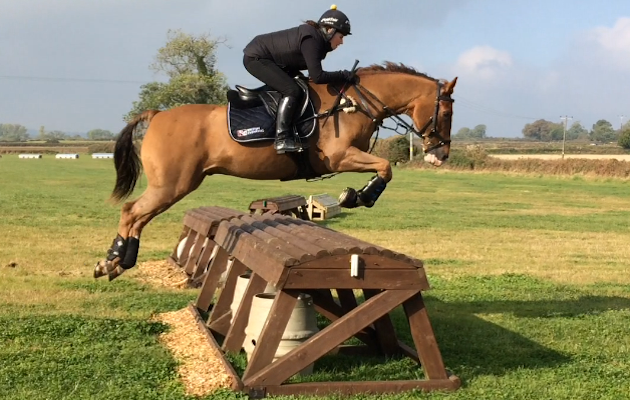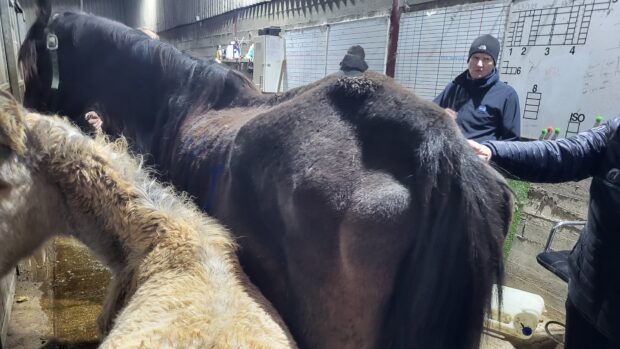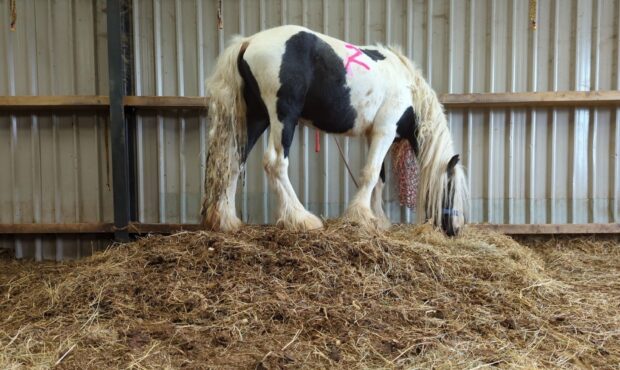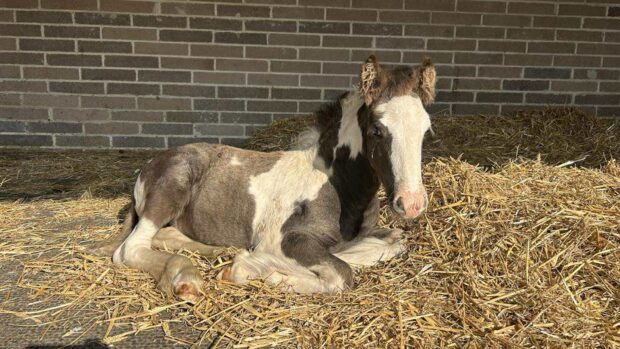The issue of fly-grazing has been highlighted by BBC Radio 4 drama The Archers.
Character Lynda Snell woke up to discover six neglected ponies had been dumped outside her home, Ambridge Hall.
One of the ponies, a mare, was lame and had a wound on her head caused by a headcollar being left on for a long period of time.
With the help of fellow Ambridge residents Shula Hebden Lloyd and Alistair Lloyd, the injured pony was treated and the RSPCA and police contacted.
The pony was named Gem, and taken on by Shula under the Control of Horses Act (see below).
She had made good progress by yesterday’s episode (1 May), despite barging out of her stable and treading on Shula’s foot.
An RSPCA spokesman welcomed the publication of the issue of fly-grazing.
“This is a very real and important issue that can lead to various welfare problems for horses,” a spokesman for the charity told H&H.
“Often the land used for fly-grazing is unsuitable for horses, the grazing isn’t very good, it can be near busy roads or the fencing isn’t suitable which puts animals at risk.
“Thankfully the Control of Horses Act 2015 allows councils and landowners to take action quickly.
“If the horse’s owner is not found, the landowners can decide whether to rehome, sell the horse or even adopt them themselves — which happened in The Archers.
“The RSPCA, Redwings Horse Sanctuary and World Horse Welfare have been working closely together for several years to improve horse welfare in response to the horse crisis.
“As a result of this hard work the Act was brought in which gives local authorities and landowners the power to act quickly and therefore avoid horses being left in unsuitable conditions.”
Continued below…

Team chasing gets a boost from Radio 4’s The Archers
Archers fans are being introduced to team chasing

Rehomed rescue horses shine on the eventing circuit
The pair have put their tricky start in

Emaciated cob with painful abscess rescued in ‘nick of time’
The 'distressingly thin' horse had a suppurating abscess
A World Horse Welfare spokesman added that The Archers storyline is “sadly a very real issue faced by vulnerable horses, communities, farmers, landowners and charities throughout the UK”.
World Horse Welfare chief executive Roly Owers said: “As a coalition [a collaboration of charities, welfare and rural organisations including the RSPCA] we campaigned for almost three years for tougher legislation to tackle fly-grazing which blights local communities and puts thousands of horses’ lives at risk every year.
“However, that there is still more work to be done. Awareness of the Act, and the willingness of more local authorities and other landowners to use it are key to its success in tackling fly-grazing, which is just one driver of the UK’s current horse crisis.”
What to do if you end up in Lynda’s position
Under the Control of Horses Act 2015, both public and private landowners can immediately detain horses left on their land and take them to a safer environment if needed.
Providing the landowner notifies the police, and the horses’ owner, if known, within 24 hours that they have seized the horses under the Act, after four working days the landowner assumes ownership of the horses.
The Act provides landowners with a number of options on what to do with the horses, such as gifting them to a charity, selling them or as a last resort, humane euthanasia.




